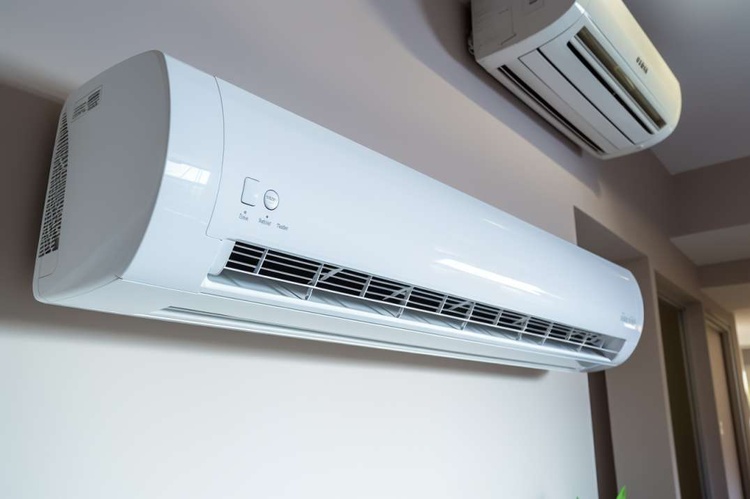Heat Pumps: The Future of Energy-Efficient Heating in New Zealand
Heat pumps have become increasingly popular in New Zealand as homeowners seek more energy-efficient and cost-effective heating solutions. These versatile devices offer an environmentally friendly alternative to traditional heating methods, providing both warmth in winter and cooling in summer. As the country moves towards a more sustainable future, heat pumps are playing a crucial role in reducing energy consumption and lowering carbon emissions.

Why are heat pumps energy efficient?
The energy efficiency of heat pumps is one of their most significant advantages. Unlike traditional electric heaters that convert electricity directly into heat, heat pumps can produce up to three times more heat energy than the electrical energy they consume. This high efficiency is measured by the Coefficient of Performance (COP), which typically ranges from 3 to 5 for modern heat pumps. This means that for every unit of electricity used, 3 to 5 units of heat are generated, resulting in lower energy bills and reduced environmental impact.
How do heat pumps contribute to insulation?
While heat pumps themselves don’t provide insulation, they work hand in hand with proper home insulation to create an energy-efficient heating system. Good insulation helps retain the warmth generated by the heat pump, reducing heat loss and improving overall efficiency. In New Zealand, where many older homes lack adequate insulation, combining heat pump installation with insulation upgrades can significantly enhance heating performance and energy savings.
What types of heat pumps are available in New Zealand?
New Zealand homeowners have several heat pump options to choose from, each suited to different needs and property types:
-
Split systems: These are the most common type, consisting of an outdoor unit and one or more indoor units. They’re ideal for heating individual rooms or open-plan living areas.
-
Ducted systems: These distribute warm or cool air throughout the entire house via a network of ducts. They’re perfect for larger homes or those wanting whole-house climate control.
-
Multi-split systems: Similar to split systems but with multiple indoor units connected to a single outdoor unit. These are great for heating several rooms independently.
-
Floor-mounted units: These are installed at floor level and are particularly effective in rooms with high ceilings or large windows.
How do heat pumps compare to other heating options?
Heat pumps offer several advantages over traditional heating methods in New Zealand:
-
Energy efficiency: Heat pumps are more efficient than electric heaters, gas heaters, and wood burners.
-
Cost-effectiveness: While initial installation costs may be higher, heat pumps typically have lower running costs over time.
-
Versatility: They provide both heating and cooling, eliminating the need for separate systems.
-
Air quality: Heat pumps filter the air, removing dust, pollen, and other allergens.
-
Safety: Unlike gas heaters or fireplaces, heat pumps don’t produce harmful emissions or pose fire risks.
What are the costs and savings associated with heat pumps?
When considering a heat pump installation in New Zealand, it’s important to understand both the upfront costs and potential long-term savings. Here’s a breakdown of typical costs and efficiency ratings for different heat pump types:
| Heat Pump Type | Average Installation Cost (NZD) | Typical Efficiency Rating (COP) | Estimated Annual Savings* |
|---|---|---|---|
| Split System | 2,500 - 4,000 | 3.5 - 4.5 | 300 - 600 |
| Ducted System | 10,000 - 20,000 | 3.0 - 4.0 | 500 - 1,000 |
| Multi-Split | 5,000 - 10,000 | 3.5 - 4.5 | 400 - 800 |
| Floor-Mounted | 3,000 - 5,000 | 3.0 - 4.0 | 250 - 550 |
*Estimated annual savings compared to traditional electric heating. Actual savings may vary based on usage, electricity rates, and home insulation.
Prices, rates, or cost estimates mentioned in this article are based on the latest available information but may change over time. Independent research is advised before making financial decisions.
While the initial cost of a heat pump may seem high, the long-term savings on energy bills can be substantial. Additionally, the New Zealand government offers various incentives and subsidies for installing energy-efficient heating systems, which can help offset the upfront costs.
In conclusion, heat pumps represent a significant advancement in home heating technology for New Zealand. Their energy efficiency, versatility, and compatibility with good insulation make them an excellent choice for homeowners looking to reduce their energy consumption and carbon footprint. As the country continues to prioritize sustainable living, heat pumps are likely to play an increasingly important role in creating comfortable, energy-efficient homes across New Zealand.





